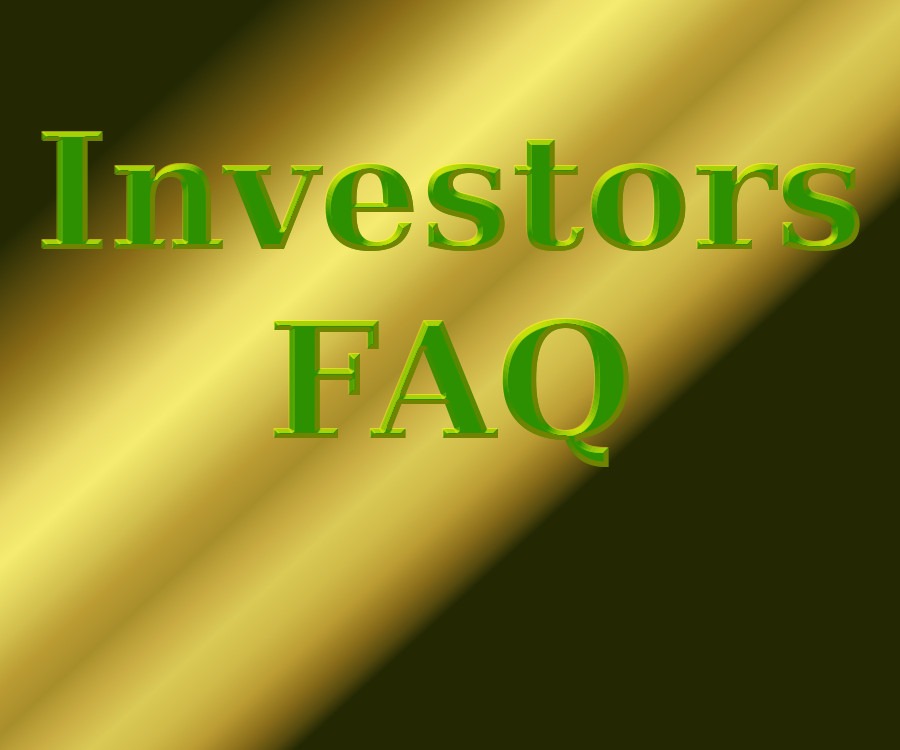The Best Financing for Real Estate Investments
I’ve had dozens of people ask me, “what is the best source of funds to begin my Real Estate Investing carrier?” The answer is simple. A home equity loan.
I’d hate to use the old saying, “it takes money to make money.” But it does. It doesn’t matter what source you use for funds. Every legitimate lender will want you to shovel out your own money before they add in their funds. That is common sense. People have to prove they have the ability to make and save money before any lender will trust them. Of course there are online stories and online lenders who claim to know secrets. The only things secret about them is their identity and what they are planning to do with the funds they extract from their victims. Other articles on my website cover aspects about Internet Fraud in Real Estate. This article will cover the best lending advise I have run across.
I’ve seen dozens of people build small empires using nothing more than personal savings and a home equity loan. The home equity loan does one thing. A home equity loan places you the investor in charge.
So you did your homework. You have your business plan in writing. You scoped out an area to invest and waited for that great deal to come along. You view the place. You do a quick spread sheet to estimate remodeling, taxes, and other costs. Including interest payments, insurance, and closing costs. Then you make the move. You write the offer as a CASH offer. In Real Estate cash is king. No doubt about it.
How Do You Get a Home Equity Loan?
 Go to your local bank. The bank you are doing business with. Talk to the loan officer. Get the rates and costs. Most costs are very low. Only a fraction of the cost of a regular mortgage. In many cases the bank will loan up to 60% or as high as 80% of the market value on your home. How does that work? Say you own a $200,000 home. Your mortgage is $120,000. That leaves you with $80,000 equity. The bank will only allow 80% of the market value which in this case is $160,000. Subtract your mortgage amount from the $160,000 and you are good for a loan up to $40,000. These of course are rough figures. But they give you an idea of what a bank can do for you and how they calculate a safe loan amount.
Go to your local bank. The bank you are doing business with. Talk to the loan officer. Get the rates and costs. Most costs are very low. Only a fraction of the cost of a regular mortgage. In many cases the bank will loan up to 60% or as high as 80% of the market value on your home. How does that work? Say you own a $200,000 home. Your mortgage is $120,000. That leaves you with $80,000 equity. The bank will only allow 80% of the market value which in this case is $160,000. Subtract your mortgage amount from the $160,000 and you are good for a loan up to $40,000. These of course are rough figures. But they give you an idea of what a bank can do for you and how they calculate a safe loan amount.
The bank may use the tax value on your home. A few banks may have you pay for an appraisal. Talk to your bank to see what their qualifications are.
What Are The Advantages of a Home Equity Loan?
There are many advantages. If you are using the money to purchase an investment property, you can simply write a check. This gives you the advantage of writing a cash offer. You may have to write a check from your home equity loan to deposit money into your checking account and withdraw a certified check to present at closing. Details like that should be discussed with your Real Estate Agent and Title Company.
You only pay interest on the money you draw from your home equity loan. In other words, it is like have a personal account you pay back to yourself. Of course the bank keeps the interest.
You can pay the minimum payment or pay back as much as you wish. If you purchase a property, remodel it, then sell it in 3 months, you can pay off the home equity loan and deposit the profit in your personal or business account.
A home equity loan puts you in charge. Your name is the only name on the deed for your investment property. You spend the money when you need to buy materials, pay contractors, and other costs.
Fees are much lower than other types of loans. The origination fee and annual fees are lower than other types of loans.
Your Business Plan
 You have to understand the fact you are using equity from your personal home. Which brings me to the subject of taxes. Check with your account to find out if the interest is deductible. It wouldn’t hurt to have your Real Estate Attorney look at the loan agreement. Since you are placing your home on the line, you better have a written plan. A business plan. You should have a list of contractors, insurance agents, inspectors, and other professionals on hand. You should have an idea of remodeling costs. Or get a quick one day estimate. You have to work with people you know and trust. Time is money. Make sure you have a set schedule. You may have to play general contractor during the project. Make sure you have all the proper permits. And don’t forget lien waivers from all the contractors. A more detailed list can be found on other articles on this site. And we will go over details when we meet and view properties. A Real Estate Agent is more of a partner. Their incomes relies on your success. Return business deserves a reward. You can see my section on Variable Rate Commissions to see my rewards program. Everything works together for success. The first investment property may seem a little shaky. But sit down, review your business plan and schedules. Do a little fine tuning and those little dips will turn into quicker and larger profits in no time. Discuss your business with people you trust and understand your progress and goals. Teamwork is the key.
You have to understand the fact you are using equity from your personal home. Which brings me to the subject of taxes. Check with your account to find out if the interest is deductible. It wouldn’t hurt to have your Real Estate Attorney look at the loan agreement. Since you are placing your home on the line, you better have a written plan. A business plan. You should have a list of contractors, insurance agents, inspectors, and other professionals on hand. You should have an idea of remodeling costs. Or get a quick one day estimate. You have to work with people you know and trust. Time is money. Make sure you have a set schedule. You may have to play general contractor during the project. Make sure you have all the proper permits. And don’t forget lien waivers from all the contractors. A more detailed list can be found on other articles on this site. And we will go over details when we meet and view properties. A Real Estate Agent is more of a partner. Their incomes relies on your success. Return business deserves a reward. You can see my section on Variable Rate Commissions to see my rewards program. Everything works together for success. The first investment property may seem a little shaky. But sit down, review your business plan and schedules. Do a little fine tuning and those little dips will turn into quicker and larger profits in no time. Discuss your business with people you trust and understand your progress and goals. Teamwork is the key.
